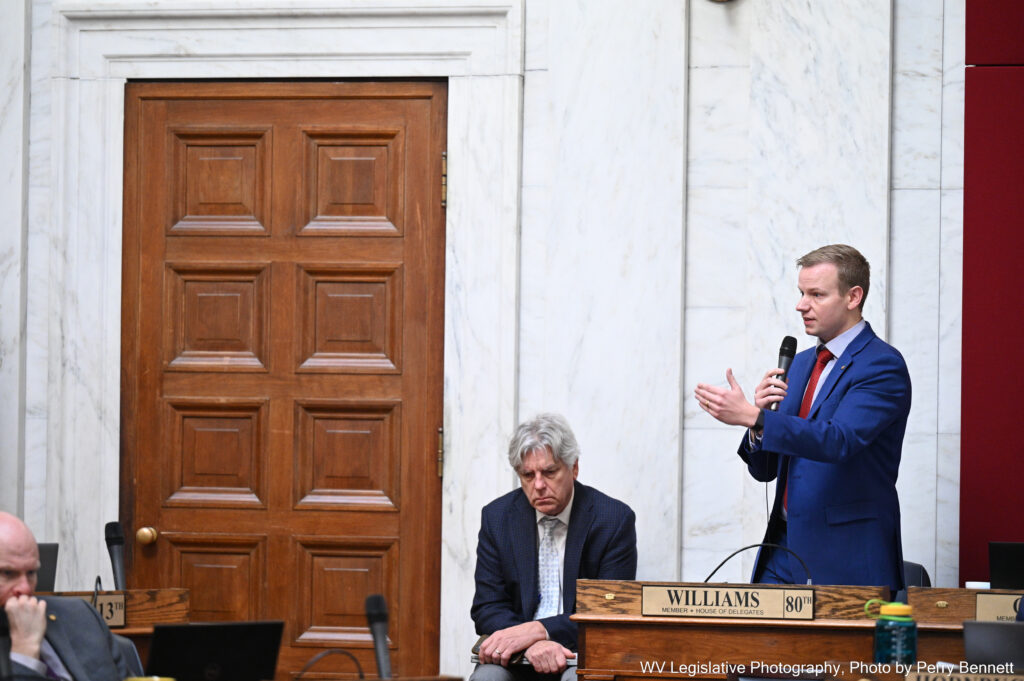Two House of Delegates bills on third reading Thursday dealt with increasing legislative oversight regarding the three new health department branches, and considering the first amendment when gathering DNA.
Health Care Transparency
House Bill 4595 would give the Legislative Oversight Commission on Health and Human Resources Accountability (LOCHHRA) more health and welfare oversight meant to create more transparency.
The legislation allows investigation of situations relating to children in state custody and children in general. It gives the West Virginia Legislature the power to evaluate program effectiveness with the three new health and human services department branches.
Vice Chair of the House Health and Human Resources Committee, Del. Heather Tully, R-Nicholas, spoke on the floor about unanswered questions surrounding the death of a Nicholas County child in 2018. She said the key to the bill is better protecting the state’s most vulnerable population.
“I had constituents asking me questions about the child’s death, when we would have DHHR before the LOCHHRA committee,” Tully said. “I really felt as though we got stonewalled and did not get the information that we really needed to figure out where our failures happened that resulted in the death of this child. I think that this really is one way we can maybe get some more information to make real time decisions for these children that could be in potential peril.”
House Bill 4595 passed 96-0 and now goes to the Senate.
DNA Collection
A bill relating to DNA to be maintained for law-enforcement purposes in West Virginia sparked nearly an hour of debate.
House Bill 4627 would allow the collection of DNA, without a court order, for those arrested and charged with certain serious felonies. The lengthy debate sparked concerns over, as one delegate said, “developing another tool is the state’s criminal justice toolbox,” to possibly violating first amendment privacy protections regarding the collection of DNA without due cause.
Del. Jonathan Pinson, R-Mason, said he understood the balance question and sided in favor of the bill.
“I understand the importance of protecting the constitutional rights of West Virginians,” Pinson said. “I understand that well, but something that I don’t think anyone spoke about today is, what about the victims of crime? Whose cases are still unanswered because we don’t know where to look.”
However, Del. John Williams, D-Monongalia, voiced constitutional freedom concerns shared among other Democrats, and several Republicans, over this method of collecting DNA. Williams mentioned headlines about the “liberal Russian and Chinese harvesting of DNA.”
“In this case, when you see things like that, those ought to be warnings of what we ought not do,” Williams said. “We have bills that we’ve passed that are dealing with not allowing TikTok on government computers because we’re afraid of them accessing our data. Meanwhile, we want our citizens’ DNA in an FBI database, potentially susceptible to hacking. I read this as a no vote.”
After votes to postpone the bill indefinitely, or wait three days to research and reconsider, failed, the DNA bill failed, by a 30-66 vote.






















